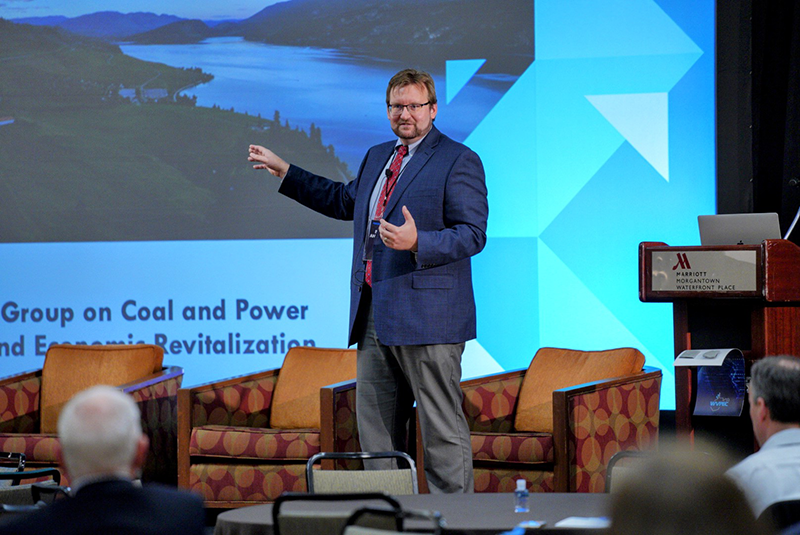Today, IWG Executive Director Brian Anderson, Ph.D. participated in the West Virginia Public Education Collaborative (WVPEC) Focus Forward 2022 event in Morgantown, West Virginia, as a keynote speaker.
Focus Forward 2022: West Virginia’s New Narrative showcased stories of innovation in government and industry, resiliency in education, and leadership in the changing culture of work in a global economy. These stories are meant to share best practices, mobilize public-private partnerships, spur investment and look ahead to determine how we want to write our next chapters in history.
Throughout the day, attendees participated in forward-thinking discussions with business and nonprofit leaders, government officials, researchers, educators and innovators to ensure West Virginia stays competitive, relevant and resilient.
Anderson presented his keynote speech on shaping West Virginia’s energy sector for increased opportunities and relevance in an evolving global economy. He also noted the IWG’s work in the state to revitalize economies, support energy workers and create good-paying jobs.
“Energy innovation is at West Virginia’s core and the state is well-positioned to expand its clean energy industries and overall workforce. As someone who comes from a long line of West Virginians, I know the people of this state are hard-working, resilient and adaptable. That’s the exact attitude we need during such a time of transition,” said Anderson.
“The remarkable examples of innovation I heard at Focus Forward are exactly the kind of results the IWG hopes to catalyze through federal funding opportunities. So many stories of communities leveraging every possible opportunity are inspiring. Communities across this great state are encouraged to continue to seize every opportunity and harness the great resources and talent of West Virginian workers,” Anderson said.
Established by an Executive Order during President Biden’s first week in office, the IWG is pursuing a whole-of-government approach to create good-paying union jobs, spur economic revitalization, remediate environmental degradation and support energy workers in coal, oil and gas, and power plant communities across the country as the U.S. prepares to undergo a historic energy evolution to a carbon emission-free electricity sector by 2035 and economy-wide net-zero emissions by 2050.

 )
or https:// means you’ve safely connected to
the .gov website. Share sensitive information only on official,
secure websites.
)
or https:// means you’ve safely connected to
the .gov website. Share sensitive information only on official,
secure websites.

